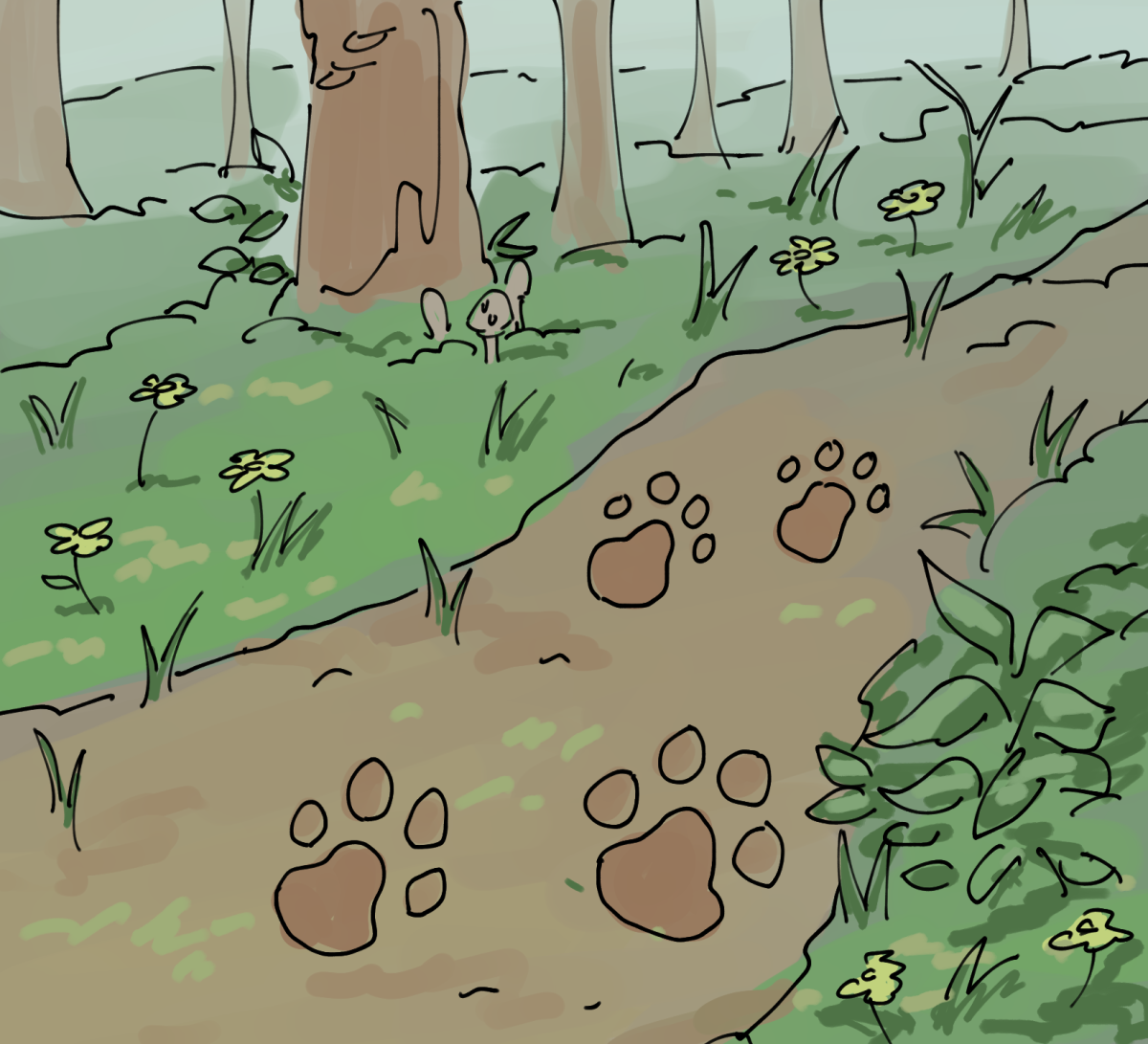As our world comes back to life with the onset of spring, it’s difficult not to think about the threats to nature that seem comorbid with the current administration. President Donald Trump has already worked to dismantle many of our preservation measures and departments, and his attacks on our national parks seem to be just another feather in his cap toward eco-devastation.
While these measures are certainly concerning from a scientific, environmentalist standpoint, what with the rising carbon dioxide levels and threat to endangered species, there’s also a human aspect to these efforts that I haven’t seen addressed as often.
Like most things in America, the history of national parks isn’t entirely positive, as their creation forced many Native people out of their land to conserve “pristine wilderness.” Tribes were suddenly no longer able to harvest plants they’d used for centuries or hunt on their ancestral lands, thus dividing and isolating them from their customs. It’s important to remember that we didn’t simply stumble upon perfect wilderness environments. The American government took them from people with a much deeper connection to the land than we could ever understand.
But there have been efforts recently to reinstate some of these relationships, like the Oglala Sioux managing the visitor center at the South Unit of Badlands National Park. Tribal members are also allowed to hunt, gather various plants and raise cattle on the land.
Unfortunately, Trump’s executive orders and his administration’s departmental reorganizations have not only laid off park workers but have even attempted to erase any “negative” depictions of U.S. history from the parks. Regulations that protect the national parks and public lands from mining and drilling initiatives have been rolled back, and signs point towards increasing directives to privatize land for commercial and industrial use. Instead of continuing to slowly move toward rectification, this would complete centuries of efforts to isolate Indigenous people from the land and practices already taken from them.
But even if you aren’t concerned with Native American sovereignty — though you should be — these policies enacted by the current administration reveal a wider theme of isolating all of us from each other for the sake of capital gain. In addition to slowly taking apart national parks, Trump is in the process of dismantling the Department of Education and the Institute of Museum and Library Services. He even announced an executive order that would force museums to remove “divisive, race-centered ideology,” including information on race being a social construct rather than a biological truth.
Schools, museums, libraries — all are places where we can learn and develop empathy for groups that are different from our own. Parks, too, function as spaces to connect with nature and develop a better understanding of our place in the ecosystem. Yet over and over again, the current administration seeks to dismantle, destroy and falsify these spaces, keeping us ignorant and disconnected from other people and our world.
Conservatives believe that money on these initiatives is wasted, that libraries are sucking up funds, that public land would be more useful as a drilling operation. But where will be left to develop our connections with others and educate ourselves when the last library closes and the last tree is razed?
It is easy to think of the national parks crisis as separate from attacks on historical information and gathering spaces, but it really is a corresponding symptom. And maybe you think it’ll blow over or that I’m hyperbolizing the threat, but the United States government already did this to Native Americans. It removed them from their land, from their history and from their cultural knowledge. It sought to destroy their connection to each other. This has happened to many marginalized groups who continue to be the first targets today.
Queer people, Black people, immigrants — if the dominant conservative agendas succeed, then the history of these marginalized groups will be written out of your public education and taken down from the museum in the same way that Native people will be wiped once and for all from your perception of wilderness. Instead of learning from each other and developing a rich tapestry of cultural identity, spirituality and responsibility, we will split further and further down, lose our empathy for others, and watch as our planet and people are divided into tinier and tinier pieces until nothing is left.
The parks are just as much a library and a museum as any brick building. Libraries and museums educate us on the fraught history of our country, helping people to develop empathy and stand up for marginalized communities. Similarly, public land allows us to develop our connection with nature, and without it, we will care less and less as the environment is destroyed. Because we will not even realize it is happening. Empathy is a muscle, and hate is born out of ignorance. If our ignorance and isolation make us easier to control and profit off of, then the government will take more and more until we don’t even realize how much has been taken.
So, support your local libraries and museums and parks with patronage and philanthropy. Find ways to engage in these communities, force the higher-ups to see the value in these institutions and never stop challenging what you are sold. Educate yourself on the ways marginalized groups have been forced out of every corner of American history. I am not writing all of this to say that these federal institutions are perfect and must be preserved blindly, but there will be nothing to grow if there is nothing left at all.
Brynn Murawski is about to spend all her free time in parks, museums, and libraries. She can be contacted at bmm185@pitt.edu



